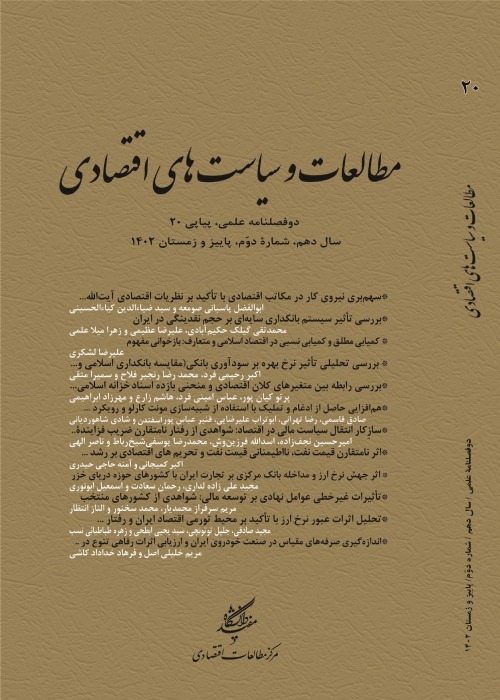The Effect of Financial and Trade Liberalization on Banking Stability in Selected Developing Countries: Dynamic Data Panel Approach
The negative consequences of financial crises on the real sector of the economy of developing countries have led policymakers to pay special attention to monitoring and evaluating the financial stability of the banking sector. The role of banking sector in developing countries is very important because the financial sector provides financial services to the rest of the economy. Liberalization theory argues that liberalization of international trade and financial flows can promote financial stability and the development of banks. Trade liberalization reduces transaction costs while increasing the volume of trade, and financial liberalization leads to better allocation of financial resources by creating a competitive environment in the financial market and facilitating the mobilization of capital. Therefore, in this study, the effect of financial and trade liberalization on the banking stability of 25 selected developing countries in the period 2000 to 2019, using the GMM dynamic regression model has been investigated. The results show financial and trade liberalization have positive effects on the banking stability of selected developing countries. Simultaneous implementation of financial and trade liberalization has an unexpected negative effect on banking stability. Findings also show that per capita income increases banking stability and inflation decreases banking stability.
-
Survey of Legal, Supervisory and Policy Requirements for Implementing Compliance Risk Management in Islamic Banking
*, Golzar Aghaie, Azam Parsafar
Journal of Studies in Banking Management and Islamic Banking, -
The Impact of Factors Affecting on Financial Stability in Selected Developing Countries: A Panel Data Approach
, Mohammad Sokhanvar *, Tahere Akhoondzadeh
Journal of New Economy and Commerce,



